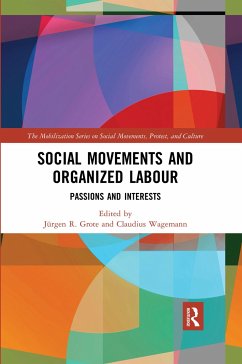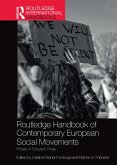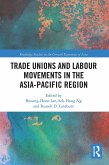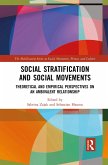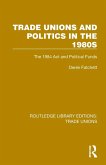This book is about the building of alliances and about joint activities between two groups of social movement actors ascribed increasing relevance for the functioning and the eventual amendment of democratic capitalism. The chapters provide a well-balanced mix of theoretical and empirical accounts on the political, social and economic catalysts behind the changing motives finding expression in a multitude of novel types of joint collective action and inter-organizational alliances. The contributors to this volume go beyond attempting to place unions, movements, crises, precariousness, protests and coalitions at the centre of the research. Instead, they focus on actors who themselves transcend clear-cut social camps. They look at the values and motives underlying collective action by both types of actors as much as at their structural and strategic properties, and inter-organizational relations and networks. This creates a fresh, genuine and historically valid account of the incompatibilities and the commonalities of movements and unions, and of prospects for inter-organizational learning.
"The division of political labor between "self-regarding" associations and "other-regarding" movements -- between "interests" and "passions," if you will -- has been getting more and more blurred. This collection of essays accepts the challenge of explicating these changes from the perspective of trade unions. Its analytical focus is unusually consistent -- the oblique reference to Albert Hirschman is not accidental but is elaborated quite rigorously. Coming from a wide variety of European countries, the authors expose their arguments both theoretically and with a view to crucial cases in the EU's South. I recommend this volume to all students of associational politics and not just to those interested in labor relations." - Philippe C. Schmitter, Professor Emeritus of Social and Political Science at European University Institute, Florence
"This volume provides a compelling framework along with a set of European case studies to begin conceptualizing what a response, or countermovement, to neoliberalism and its resulting crises in Europe and beyond might entail. The authors argue that the key lies in rethinking the distinctions between, and the important roles of labor unions and other social movement organizations, and how alliances between them might be initiated and/or strengthened, thereby encouraging movement beyond particularism and the transcendence of distinctions between passions and interests. I highly recommend this informative volume!" - Judith Stepan-Norris, Professor of Sociology at the University of California, Irvine
"Trade unions are - as the Webbs put it - 'continuous associations', and their organizational persistence allows them to embody historical learning, and also to synthesize interests across a broad worker constituency. But they can become tradition-bound, bureaucratic structures, slow to adapt to new challenges. 'New social movements' escape many of these weaknesses of trade unionism but also lack many of its strengths. Can the positive features of both be integrated, and if so, how? To a large degree, each is the focus of distinct literatures which too rarely interconnect. The virtue of this book is to make fruitful connections between these separate research traditions, offering some hope for an alternative collective response to neoliberalism." - Richard Hyman, Professor Emeritus of Industrial Relations at London School of Economics and Political Science
"This volume is a welcome reminder that, despite all, trade unions did not end with the twentieth century. They continue in a lively field of social movements animated by passions, interests, and the sheer need to survive." - Georgi Derluguian, Professor of Sociology at New York University-Abu Dhabi and the Moscow School of Social and Economic Sciences
"This volume provides a compelling framework along with a set of European case studies to begin conceptualizing what a response, or countermovement, to neoliberalism and its resulting crises in Europe and beyond might entail. The authors argue that the key lies in rethinking the distinctions between, and the important roles of labor unions and other social movement organizations, and how alliances between them might be initiated and/or strengthened, thereby encouraging movement beyond particularism and the transcendence of distinctions between passions and interests. I highly recommend this informative volume!" - Judith Stepan-Norris, Professor of Sociology at the University of California, Irvine
"Trade unions are - as the Webbs put it - 'continuous associations', and their organizational persistence allows them to embody historical learning, and also to synthesize interests across a broad worker constituency. But they can become tradition-bound, bureaucratic structures, slow to adapt to new challenges. 'New social movements' escape many of these weaknesses of trade unionism but also lack many of its strengths. Can the positive features of both be integrated, and if so, how? To a large degree, each is the focus of distinct literatures which too rarely interconnect. The virtue of this book is to make fruitful connections between these separate research traditions, offering some hope for an alternative collective response to neoliberalism." - Richard Hyman, Professor Emeritus of Industrial Relations at London School of Economics and Political Science
"This volume is a welcome reminder that, despite all, trade unions did not end with the twentieth century. They continue in a lively field of social movements animated by passions, interests, and the sheer need to survive." - Georgi Derluguian, Professor of Sociology at New York University-Abu Dhabi and the Moscow School of Social and Economic Sciences

